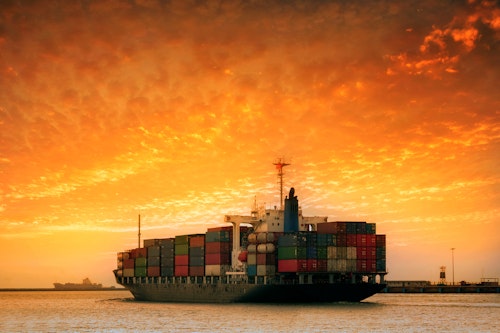What Paul Krugman Mis-sells About TPP

This week, Paul Krugman has come out with a blog and New York Times column in opposition to the Trans-Pacific Partnership (TPP). Because a number of accusations were made, we felt compelled to respond to his main points:
Dr. Krugman says: Whatever you may say about the benefits of free trade, most of those benefits have already been realized.
Yet, Dr. Krugman provides absolutely no data for this assertion. And, according to the World Economic Forum, American manufacturers face some of the steepest trade barriers for exports in the world. For example, when you look at the amount of tariffs a country faces, Mexico faces the 28th lowest barriers out of 138 countries. China faces the 58th lowest. And other TPP countries face fairly low tariffs: New Zealand, 23rd lowest; Peru, 11th lowest; Singapore, 5th lowest; and Vietnam, 9th lowest. But not the United States. The U.S. clocks in at 130th out of 138. This means that 129 countries face fewer trade barriers than American manufacturers.
Here’s how that looks in practice: in 2014, almost 70% of U.S. imports crossed our borders duty-free, with our average tariff rate at 1.4%. Comparatively, U.S. exporters deal with an average tariff rate of 6.8% plus countless non-tariff barriers to trade, making it harder for American companies to compete. The playing field is not level.
Dr. Krugman says: I don’t know why the president has chosen to make the proposed Trans-Pacific Partnership such a policy priority.
First, our growth will be more and more dependent on tapping into foreign markets—especially the booming Asian growth. PwC projects that, by 2030, the world economy is expected to grow by $61 trillion, with almost 90% of the growth occurring outside the United States. Our success will increasingly depend on how much of that new wealth is spent on American goods and services.
Second, there is a serious geo-political argument to be made—especially because China is racing to set the rules for the region. What many on the left fail to mention is that China is currently negotiating its own regional trade deal (called Regional Comprehensive Economic Partnership) that is roughly the same size and scope as TPP, but it has an additional goal: to undercut the U.S.-led TPP and high-standard American rules in the region. When China makes the rules, it hurts American labor and American businesses.
Dr. Krugman says: The Pacific trade pact could force the United States to change policies or face big fines.
What Dr. Krugman is referring to is the investor-state dispute settlement which has been used for decades in international agreements to ensure companies don’t face discrimination in foreign courts. There’s been a lot of misinformation that ISDS gives foreign companies the opportunity to affect and weaken U.S. laws—particularly environmental, health, and labor regulations. However, the reality is that ISDS cannot make any country change any law or regulation. Any change to U.S. law has to be approved by Congress. In fact, recent U.S. FTAs include language stating that regulations to protect health, environment, and other public goods cannot be subject to ISDS claims.
Dr. Krugman says: the only really hackish economics [he’s] seen in this debate is coming from supporters of the trade pact.
What Dr. Krugman is referring to is Bill Daley’s oped in the New York Times which rightfully asserts: “Today, of the 40 largest economies, the United States ranks 39th in the share of our gross domestic product that comes from exports.” Krugman says we have a low export share because we’re a big country.
Yes, it’s true that smaller countries tend to export more as a share of their GDP, but guess what—other big countries are exporting way more than we are. While 13% of our GDP is derived from exports China is 26%, India is 25%, Indonesia is 24%, Russia is 28%, and Japan is 16%. For the sake of comparison within our region, Mexico is 32%. Other countries know how important exports are fueling growth and seizing foreign market opportunities.
Subscribe
Get updates whenever new content is added. We'll never share your email with anyone.
